Date: August 8-12, 2023
Location: GCE4-All Research Center, Oregon State University, Corvallis, Oregon, USA
Applications Open in March
Applications will be accepted until the workshop is full.
Course Fee*:
Academic $2,250 until May 30th, and $2,500 until June 30th.
Industrial $4,200 until May 30th and $4,500 until June 30th.
*course fee includes daily breakfasts and lunches and two group dinners. Lodging (https://gceworkshops.org/lodging/) and Travel (https://gceworkshops.org/travel/) not included.
Workshop Application Instructions:
Application vs. Registration: Completing an application will not register you to attend, nor does it guarantee acceptance to attend. Registration can only be completed once you have been accepted by the Conference Committee/Chair. If accepted you will be notified via email with an unpublished link to register for the conference. Registration and payment arrangements are expected at that time.
Instructors:
Ryan Mehl, GCE4All Research Center, Oregon State University
Rick Cooley, GCE4All Research Center, Oregon State University
John Lueck, University of Rochester Medical Center
Riley Bednar, Oregon State University
Coordinators:
Kari van Zee, GCE4All Research Center, Oregon State University
Kayla Jara, GCE4All Research Center, Oregon State University
Advances in Genetic Code Expansion and bioorthogonal ligations have changed the landscape of protein studies by enabling site-specific conjugation to proteins in vitro and in vivo. Genetically encoding bioorthogonal ligations is inherently a fusion of synthetic biology and chemical biology. Success requires 1) the addition of all the necessary translational components to an organism that allow it to efficiently produce a protein with new chemical functionality site-specifically encoded, 2) optimization of scientific studies of the chemically modified protein in vivo or in vitro, and 3) optimization of the labeling reaction to the protein of interest while minimizing any background reactions. Overall, success with genetically encoding bioorthogonal ligations relies on proficiency in both synthetic biology and chemical biology.
This intensive laboratory and lecture course will provide participants with the theoretical and practical knowledge to utilize existing and emerging genetic code expansion technology in biorthogonal ligations. The laboratory component will focus on using bioorthogonal ligation tools in E. coli and mammalian systems. Participants will learn strategies for appropriate controls and troubleshooting for all bioorthogonal GCE experiments, but in lab we will focus on Alkene and tetrazine inverse-demand Diels-Alder chemistry.
The laboratory component will focus on two common needs in the genetically encoding bioorthogonal ligation field: 1) incorporation of reactive non-canonical amino acid into your protein of interest and control proteins 2) labeling and reacting your protein with fluorescent dyes. As part of the laboratory component of the course, participants will be given the opportunity to bring their research gene of interest to the workshop to test their expression and incorporation along with optimized controls.

The lecture component will focus on how new genetic code expansion components are generated and attributes of orthogonality, efficiency, fidelity and permissivity are defined, measured and are conditionally dependent. The major applications now afforded by encoding bioorthogonal reactive non-canonical amino acids will be discussed with a focus on the limits to each technology and future applications.
Lecture Topics will Include:
GCE overview and current status of the field.
Overview of ncAA classes and categories, current status of the field—including pros and cons of different kinds of biorthogonal ligations and labeling partners.
The good the bad and the ugly of genetically encoding bioorthogonal ligation.
Technical aspects of E. coli biorthogonal ligations.
Technical aspects of eukaryotic biorthogonal ligations.
Dual bioorthogonal encoding and labelling.
Future directions of the genetically encoding bioorthogonal ligation field.
Course Selection Process: The number of participants in the GCE workshop is strictly limited to ensure excellent instructor-to-student ratios and adequate access to laboratory equipment. Instructors are confronted with the difficult task of selecting diverse students from a large number of well-qualified applicants. To facilitate this process, each applicant is asked to upload two files in their application: a personal statement and a CV. In their personal statements, applicants should clearly describe their reasons for wanting to take this course. As part of this, applicants are encouraged to outline 1) their experience with genetic code expansion or bioorthogonal ligations, 2) how they will apply genetic code expansion and biorthogonal ligation in their current projects or teaching, and 3) their long-term goals in learning more about genetically encoding bioorthogonal ligation. Course admission is based first and foremost on the degree to which an applicant would benefit from the training opportunity, which in turn is judged from the information provided by the applicant.
Financial Aid: Full scholarship and half scholarship support is available for the GCE workshop. The number of scholarships available depends on a number of factors, including the level of financial support in a given year and the number of students requesting stipends. Scholarships are awarded to support women and minorities in research and education. Applicants requesting financial assistance must submit their requests as a separate file in their online applications. If you would like to apply for scholarship support, please upload a letter with your application materials that clearly states the amount you’re requesting and provides a full justification for the request. The amount awarded will be based upon the availability of funding. Please note that financial support for travel costs and ground transportation to and from OSU is not available for any applicant.
